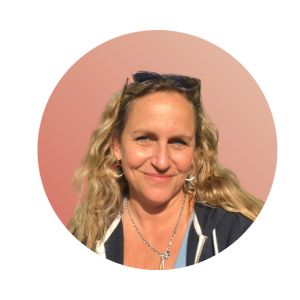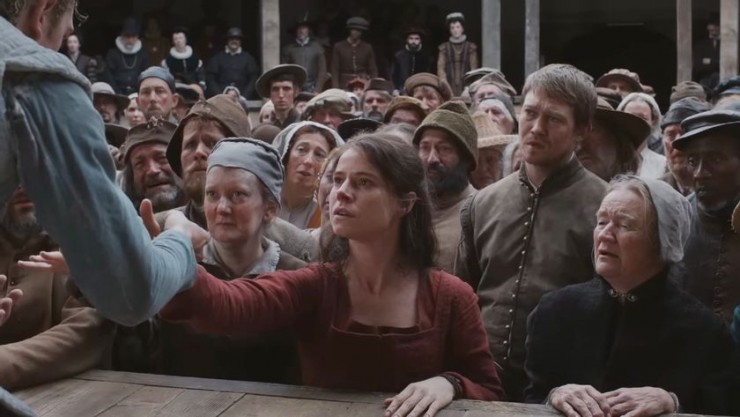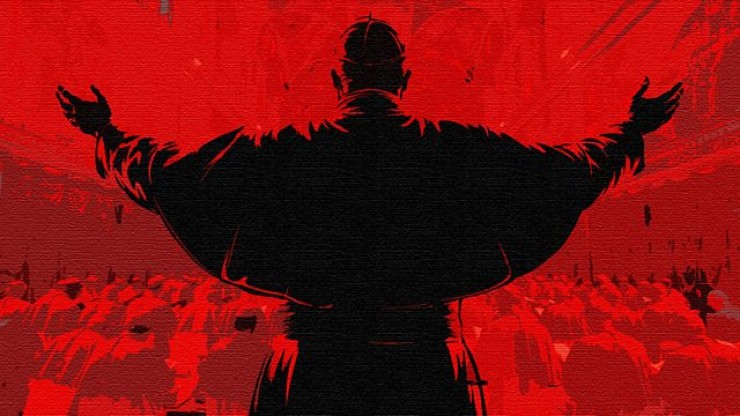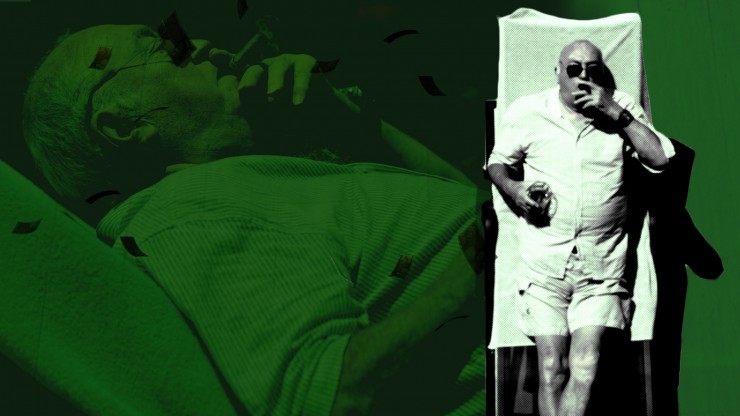Our Featured TM Pro Member today is Kate Misrahi, Producer/Director.
Why did you decide the PD route was where you wanted to work?
After finishing an Art History degree at Sussex University, I went to work in a Cork Street gallery. While there – and being bored out of my mind – we received a flyer from Wall to Wall about a new Channel 4 series on the art market called 'For Love or Money'. It made me curious and spurred me on to do an MA at City University in Arts & Broadcasting. That course inspired me to try and find work in TV and I knew early on that I wanted to direct documentaries. But how to get a foot in?!
How did you get into PD-ing?
I was working as a freelance researcher on the BBC’s internal magazine, Aerial, when I spotted an advert for the position of second secretary to the Head of Arts. “Here’s my chance”, I naively thought, “to become a researcher in the BBC Arts department.” When I got the job, I found there was a long list of graduates all begrudgingly working in secretarial roles who wanted to be researchers. I was politely told to “Get in the back of the queue!”. I knew then I had to be patient and bide my time. Back then, becoming a secretary was often the only way to get your foot in the door of the TV industry for women. Within two months, my new boss, Michael Jackson, was made Controller of BBC2. He asked me and his first secretary, Selina Mehta – who is now my best pal – to come with him to TV Centre. The deal was that if we stayed with him for another year, he would make sure we became staff. It was the best move I ever made – despite champing at the bit to become a researcher and being a pretty terrible secretary (I once left Janet Street-Porter and Bob Geldof waiting in reception as I’d forgotten to tell reception to send them up… half an hour later, they stormed into Michael’s office effing and blinding about being kept waiting. Oops). After a year, as promised, we both became staff and were soon offered jobs as researchers on BBC2’s long running magazine strand, 'The Late Show'.
How did you learn to be an PD? What skills do you need?
From being a researcher on 'The Late Show' and the live studio weekly 'Late Review', I very quickly got into directing short items for the BBC2 arts/heritage strand 'One Foot in the Past'. I did a bit of AP’ing before making that jump and learning from other more seasoned directors. But I was very ambitious and keen to start directing! In those golden BBC Arts days, there were many more opportunities to cut your teeth as a director on magazine and short form strands, to explore your passions and crucially, learn from your mistakes. Working with smart researchers and supportive, unpatronizing DoPs really helped boost my confidence as a fledgling PD. Now after nearly 28 years experience of directing and producing documentaries for the BBC, ITV, Channel 5, the Smithsonian Channel and latterly for streamers like Paramount+, I would say the key skills needed are a passionate curiosity about life, people and places; an ear for a good story and the ability to gain contributors’ trust so that they tell you the full story, warts and all; perseverance and self-belief; a keen visual sense and willingness to constantly innovate and use new tech at your disposable. Collaboration is also key and recognition that each person on a production has a key role to play.
What kinds of programmes do you work on?
I’ve worked on a range of Specialist Factual and contemporary docs, mainly in arts, history and current affairs (the softer end of current affairs – more like social history). I’ve had the pleasure of working with some of the most respected and high-profile presenters on blue-chip series like Jeremy Paxman, David Dimbleby, Kirsty Wark, Kirsty Young, Dominic Sandbrook, Lucy Worsley, Edith Bowman and Amol Rajan, to name but a few. Their knowledge and expertise have taught me a lot. But the films I’m perhaps most proud of are the ones where ‘normal’ contributors have led the story, from observational documentaries like 'Making It', where I filmed young fashion and design graduates trying to launch their careers, to visually experimental shorts like 'Women Who Spit', fronted by some kick-ass young female spoken-word poets. My all-time favourite piece of work is an Artsnight episode I directed where we asked a range of people – many of whom had never set foot in a gallery before – to make their unguarded comments about major art works while being filmed with hidden cameras. For some it was a revelation that art could make sense of a range of issues affecting them, from infertility to homophobia. I am still friends with some of the contributors and cherish the connections I made through this film. The fact that the film opened them up to the revealing and healing power of art was really gratifying. I’ve also worked on numerous archive-led films like the award-winning 'Thirties in Colour', 'America in Colour', 'Blitz: The Bombs that changed Britain' and 'Diana’s Decades' as well as profiles on leading artists and creatives – most recently a feature-length doc on fashion designer Gianni Versace for Paramount+, which will start streaming in June.  Kate on location in Captiva island, Florida filming Robert Rauschenberg documentary
Kate on location in Captiva island, Florida filming Robert Rauschenberg documentary
What are the most challenging projects to work on?
Ones where there are high ambitions but little money! Having to square that can be very challenging, but it does force you to be extra creative and pull in all sorts of favours with contacts built up over the years. Films which are archive/interview led with no narration or presenter can also be challenging in terms of storytelling and turning corners but are often the most creatively satisfying. Projects that have too many execs can be really challenging - too many cooks etc. You can never satisfy everyone’s editorial vision and it becomes harder to retain your own in a top-heavy production.
What would be your advice to someone trying to get into your area of expertise?
Watch as many documentaries as you can and hoover up art/culture/performances/talks/life to get inspired and make new contacts. Reach out to PDs and SPs/Execs whose work you admire and ask them about their career paths. Most people like talking about themselves and want to help others. Finally and most importantly, don’t give up and keep writing those emails introducing yourself and asking for work or just work experience – keep knocking on doors as they won’t open without you knocking. Never be embarrassed to chase!
What’s your best TV life hack?
Remind yourself, in the most stressful of times, that it’s only telly. You are definitely providing a service to the public in entertaining and informing them, but you’re not performing life-saving brain surgery! Try not to take yourself too seriously either. A sense of humour really helps.
Why do you like using Talent Manager?
Talent Manager is a brilliant way of keeping connected and up to date with your peers and for making new contacts with people who might offer you a job. The Hub provides some great talks, workshops and training sessions and I find Talent Manager useful for seeing what jobs are being advertised and what companies are looking for.
In particular, what are the benefits to being a Pro member?
Being a Pro member allows you to see which companies have looked at your profile or downloaded your CV, so that you can then target those companies. You get to see who is actively recruiting and you also get access to very useful workshops and networking events.
Thanks for sharing your answers with us! Connect with Kate’s TM profile here - she is available for work from 8th May to the end of July and then from September onwards! Snap her up quick!
Insta: kate_misrahi
FB: /kate.misrahi
Twitter: @misrahieast
YouTube / weblink: https://vimeo.com/katemisrahi


